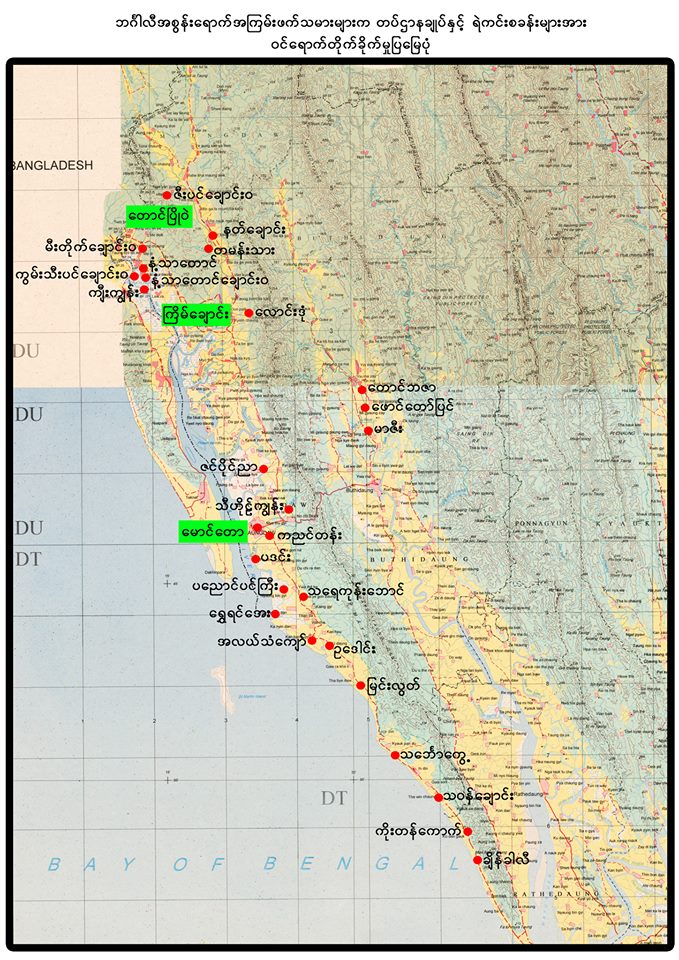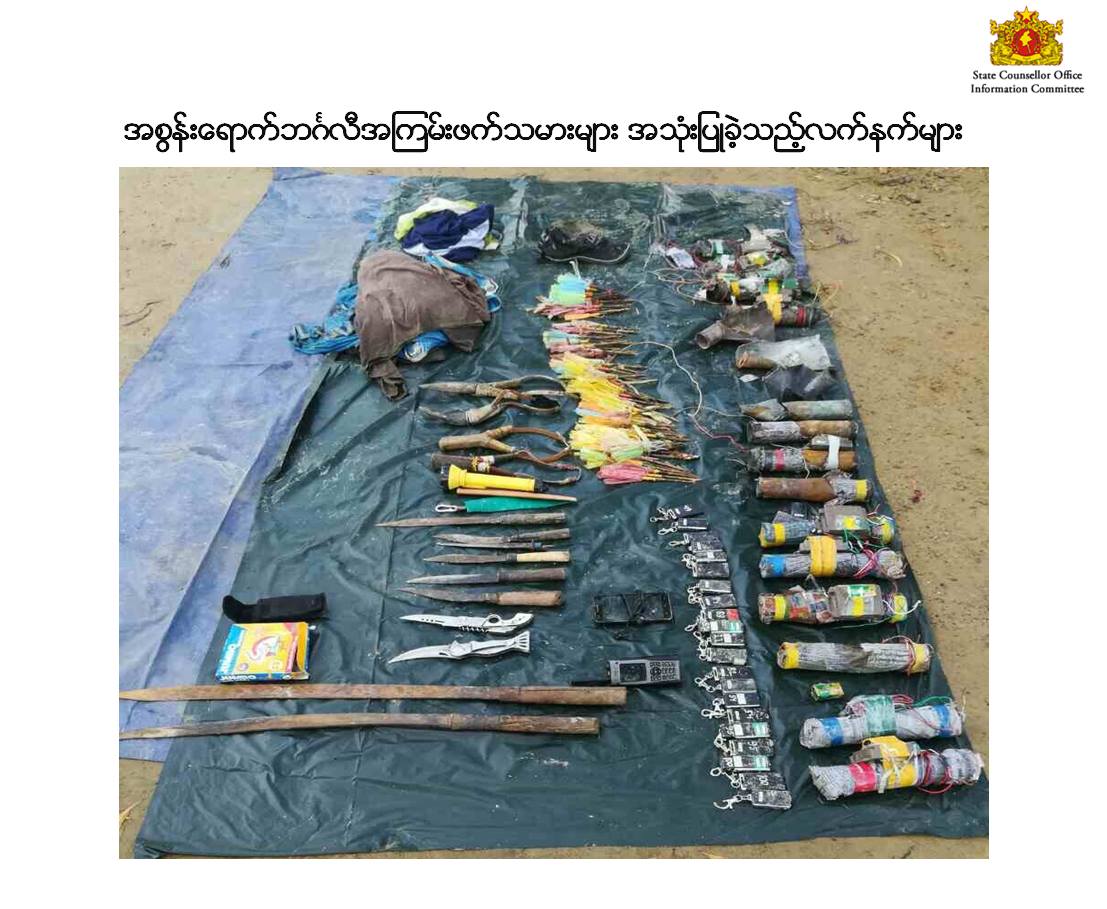YANGON — At least 10 police and one Myanmar Army soldier were killed in attacks on 24 border guard posts, police stations, and army bases by Muslim militants in Maungdaw, Buthidaung and Rathedaung townships in northern Rakhine State on Thursday night and Friday morning, according to a statement from Myanmar Army Commander-in-Chief Snr-Gen Min Aung Hlaing on Friday.
Five firearms were looted by the attackers and the bodies of 15 suspected militants were found, it said, adding that fighting was ongoing. It is the largest attack by Rohingya Muslim militants since assaults on border guard posts in October 2016.
An earlier statement on the official Facebook page of the State Counselor’s Office Information Committee said “the extremist Bengali insurgents attacked a police station in Maungdaw region in northern Rakhine state with a handmade bomb explosive and held coordinated attacks on several police posts at 1 a.m.”
The Rohingya Muslim community in Rakhine is referred to by many, including the government, as “Bengali” to suggest they are interlopers from Bangladesh.
Some 150 men allegedly attacked Infantry Base 552 and an explosive device was used in an attack in Maungdaw, according to the State Counselor’s Office statement.
Another 150 men allegedly attacked a police station at Taung Bazaar at 3 a.m. and the bodies of six suspected attackers were found, according to the commander-in-chief’s statement.
A number of ethnic Rakhine Buddhists fled their villages in Taung Bazaar and were taking refuge in a monastery, according to a local journalist.
The attacks took place one day after an advisory commission led by the former UN chief Kofi Annan finished its year-long mandate to advise State Counselor Daw Aung San Suu Kyi’s government on long-term solutions for the ethnically and religiously divided Rakhine State. In its final report, the commission recommended holding the Myanmar Army to account on accusations of human rights abuses, as well accelerating citizenship programs.
Varying Reports of Casualties
The government statement listed the 24 locations that had come under attack—including Koe Tan Kauk in Rathedaung, which was also attacked by militants in October 2016. It said attacks were ongoing at the time of the statement’s release early Friday morning.
Police Maj. Aung Win of Maungdaw Border Police Headquarters No. 1 in Kyee Kan Pyin confirmed the attack to The Irrawaddy, but would not comment on the number of deaths.

Arakan National Party (ANP) Chairman U Khin Maung Than, based in Maungdaw, said the attacks broke out at 12:00 a.m. on Friday and that one attack reportedly occurred in the No. 5 Quarter of downtown Maungdaw.
According to him, at least six had been killed and clashes were continuing in southern Maungdaw, he added.
Maungdaw regional lawmaker from the ANP U Maung Ohn said, “I have no words to express how I feel about this incident,” but added that he had heard that at least ten had been killed.
He condemned the Lower House for voting down an ANP proposal to intensify administrative and security methods in northern Rakhine State on Thursday.
“This is issue is not just of concern to Rakhine: every member of Parliament should consider the case as a national affair,” U Maung Ohn told The Irrawaddy, noting that many lawmakers from the ruling National League for Democracy party have never visited the conflict-torn region.
Responsibility Claimed
A Twitter account claimed by the Arakan Rohingya Salvation Army (ARSA), a group that says it is fighting against Rohingya persecution, posted a statement on Friday morning saying that they had undertaken “defensive actions” against security forces in more than 25 locations, but did not provide details on any confrontations.
The move, ARSA said, followed a two-week blockade by the authorities on food for Muslims in Rathedaung Township, and increased violence by the military in Rathedaung and Maungdaw against Rohingya communities.
In Friday’s statement, the group vowed that they would “continue [their] struggle.” In previous statements dating back to May, statements from the ARSA Twitter account maintain that the group was committed to avoiding civilian targets.

In October 2016, Harakah al-Yaqin—meaning “Faith Movement,” and the name by which the ARSA was formerly known—claimed responsibility for attacks on three border police outposts, killing nine policemen. In response to the attacks, the police and military initiated clearance operations in northern Rakhine State, displacing more than 70,000 Rohingya to Bangladesh, and facing allegations by international rights groups of atrocities including extrajudicial killings, torture and rape.

















